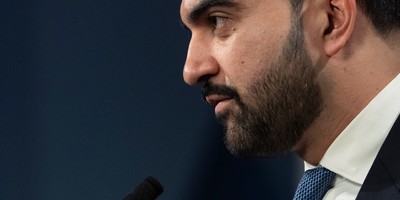Since the 1950s the Longview, Wash. City Council has opened its public meetings with prayer, as Congress has done for 239 years. But fear of a lawsuit from groups like the ACLU has caused the mayor to tell the local ministerial association that it is “not acceptable” for ministers who volunteer to give a Christian prayer that refers to Jesus.
To their credit, the ministers refused to give a generic prayer that violates the convictions of their faith.
So, for fear of an ACLU threat, city officials decided to exclude ministers simply because their faith teaches them to pray a particular way.
In 1992, the Supreme Court addressed the constitutionality of public prayer. Justice Anthony Kennedy warned that when the government dictates that public prayers must be generic or avoid references that are unique to any particular faith, like referencing Jesus, it is constitutionally problematic.
Surprised? That’s because you can’t believe everything you read in the news releases of groups that want to cleanse all traces of religion from the public square.
Kennedy explained that allowing the government to dictate the content of prayer can create a state religion and disguise religious hostility under the cloak of neutrality.
Now, some 20 years later, reports indicate that the city of Longview is foregoing Kennedy’s insight. As The Daily News reported, “‘Christ’ ban signals apparent end to Longview council meeting invocation.”
This is a mistake of constitutional proportions. Kennedy’s opinion concerned a prayer given at a public school graduation exercise, but his warning applies equally to cases challenging public invocations given before legislative meetings.
Recommended
Thirty years ago, the Supreme Court decided Marsh v. Chambers, which denied an atheist’s attempt to stop the Nebraska Legislature from opening sessions in prayer. The court rejected the claim, noting that the first Congress voted to hire chaplains to open sessions with prayer three days before finalizing the wording of the First Amendment. The court wisely reasoned that finding legislative prayers unconstitutional would foolishly accuse the Founding Fathers of violating the Constitution - even as they were writing it!
Following Marsh v. Chambers, some questioned whether the government could place limits on the types of public prayers that are offered. Likely well-intentioned officials began imposing restrictions on the content of the prayers because they believed that audiences would be more comfortable with a generic prayer. It was this sentiment that gave rise to Kennedy’s warning in Lee v. Weisman that government should not and cannot dictate a form of prayer.
Unfortunately, some courts have ignored his warning.
In 2011, one lower court scoffed at the notion that mandating a non-descript, religiously neutral prayer would create a challenge for local governments. But the Longview debacle demonstrates that demanding a person leave their faith at the door of city hall is indeed a real problem.
Since 2004, secularist groups like the ACLU, Freedom From Religion Foundation, and Americans United for Separation of Church and State have brought 17 different federal lawsuits to prevent people from praying according to their personal beliefs. Instead, the secularists ask courts to banish the historic tradition outright or to so neuter prayers that they become meaningless.
In the next few weeks, the Supreme Court will have an opportunity to weigh in again on challenges to public prayer. The Town of Greece, N.Y. has asked the high court to reverse a federal appeals court decision striking down a prayer practice because too many of the prayers were Christian. Let’s pray the Supreme Court gets this one right.

























Join the conversation as a VIP Member